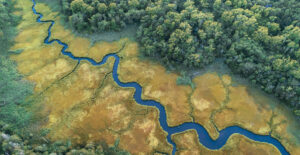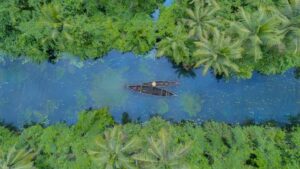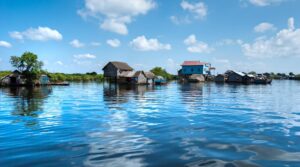WI Regional Cap Build Sub-Saharan Africa Stock Taking Report
This stock taking report came at the end of the three-year Programme ‘Regional Capacity Building Programme, Promoting and Developing Water Integrity in Sub-Saharan Africa’. Since the beginning of the Programme in June 2011, the programme empowered a growing community of skilled water integrity ambassadors and actors with methodologies and tools to identify and reduce integrity risks. Participants developed individual water integrity action plans and implemented them in their home institutions, sharing the results with us. The feedback described changes incorporated into procedures and ways of working. These are powerful first steps towards ensuring that investment in the water sector has the intended outcome.
We trained people holding a range of responsibilities, up to the level of minister, and from the areas of regulation, control, planning, policy development and decision-making. We also trained stakeholders less directly involved in water management but with key roles in strengthening or demanding accountability e.g. media, water users associations and advocacy organizations.
We spread our net wide, and are receiving information on efficacy of water integrity tools from across the water sector, from across the African continent and from different institutional scales e.g. regional, basin and national institutions. The current series of trainings terminated in April 2014. The programme culminated in a Water Integrity Summit on April 29-30, 2014 in Lusaka, Zambia. Reaching this point was an important milestone and the progress was down to our strong partnerships and far-reaching networks.
Participants deliberated on ways that corruption plays out in daily life including collusion, bribery, abuse of discretion and nepotism. The training also gave participants a realistic understanding of the work ahead and what is required in terms of institutional strengthening.
In the SADC region we found inspiring leadership on integrity. This demonstrated how strong political support is vital for integrity to progress and that we need to prioritize water integrity awareness at the highest decision-making levels. An initiative in the EAC-LVBC region addressed specific aspects of gender in relation to integrity. The training highlighted the fact that gender inequality, balance of power and unethical practices are interrelated, opening doors to combined efforts tackling both subjects from different angles.
The EAC-LVBC work also highlighted the value of collaboration on programmes with infrastructure components. Linking integrity trainings to infrastructure investments means that good water integrity practices and tools can be integrated into a project from the outset, allowing people to learn ‘on the job’.
Lesson learned
- The openness and awareness raising achieved in discussions, on what have traditionally been topics that people avoided, is a powerful outcome. In addition, participants had the opportunity to continue their discussions on our alumni platform, finding support, and sharing observations and experiences, long after the training had finished.
- A major lesson from our work in the ECOWAS region was that programme funding, if strategically used, can mobilize funding from other sources. This amounted to approximately 1,162,000 EUR in terms of support for the programme from African and European states and from partner non-governmental organizations (NGOs).
- ‘It takes more than one person for the corrupt process to go on. Also corruption is everyone’s business. We all believe that in trying to minimize or control corruption, we are actually saving money for the water sector to help everybody including the poor.’ – Charles Biney, Executive Director of the Volta Basin Authority in Ouagadougou. Participant.
- A total of 439 people attended 19 training sessions and workshops. 19 people came from the regions to our ‘Training for Trainers’. In the EAC-LVBC region, 147 people attended eight trainings, in the ECOWAS region 154 people attended five trainings and in the SADC region 119 people attended five trainings. An additional 95 people were trained in 2014, thereby exceeding the Programme target of 525 participants trained.
Summary
We trained people holding a range of responsibilities, up to the level of minister, and from the areas of regulation, control, planning, policy development and decision-making. We also trained stakeholders less directly involved in water management but with key roles in strengthening or demanding accountability e.g. media, water users associations and advocacy organizations.
We spread our net wide, and are receiving information on efficacy of water integrity tools from across the water sector, from across the African continent and from different institutional scales e.g. regional, basin and national institutions. The current series of trainings terminated in April 2014. The programme culminated in a Water Integrity Summit on April 29-30, 2014 in Lusaka, Zambia. Reaching this point was an important milestone and the progress was down to our strong partnerships and far-reaching networks.
Participants deliberated on ways that corruption plays out in daily life including collusion, bribery, abuse of discretion and nepotism. The training also gave participants a realistic understanding of the work ahead and what is required in terms of institutional strengthening.
In the SADC region we found inspiring leadership on integrity. This demonstrated how strong political support is vital for integrity to progress and that we need to prioritize water integrity awareness at the highest decision-making levels. An initiative in the EAC-LVBC region addressed specific aspects of gender in relation to integrity. The training highlighted the fact that gender inequality, balance of power and unethical practices are interrelated, opening doors to combined efforts tackling both subjects from different angles.
The EAC-LVBC work also highlighted the value of collaboration on programmes with infrastructure components. Linking integrity trainings to infrastructure investments means that good water integrity practices and tools can be integrated into a project from the outset, allowing people to learn ‘on the job’.




